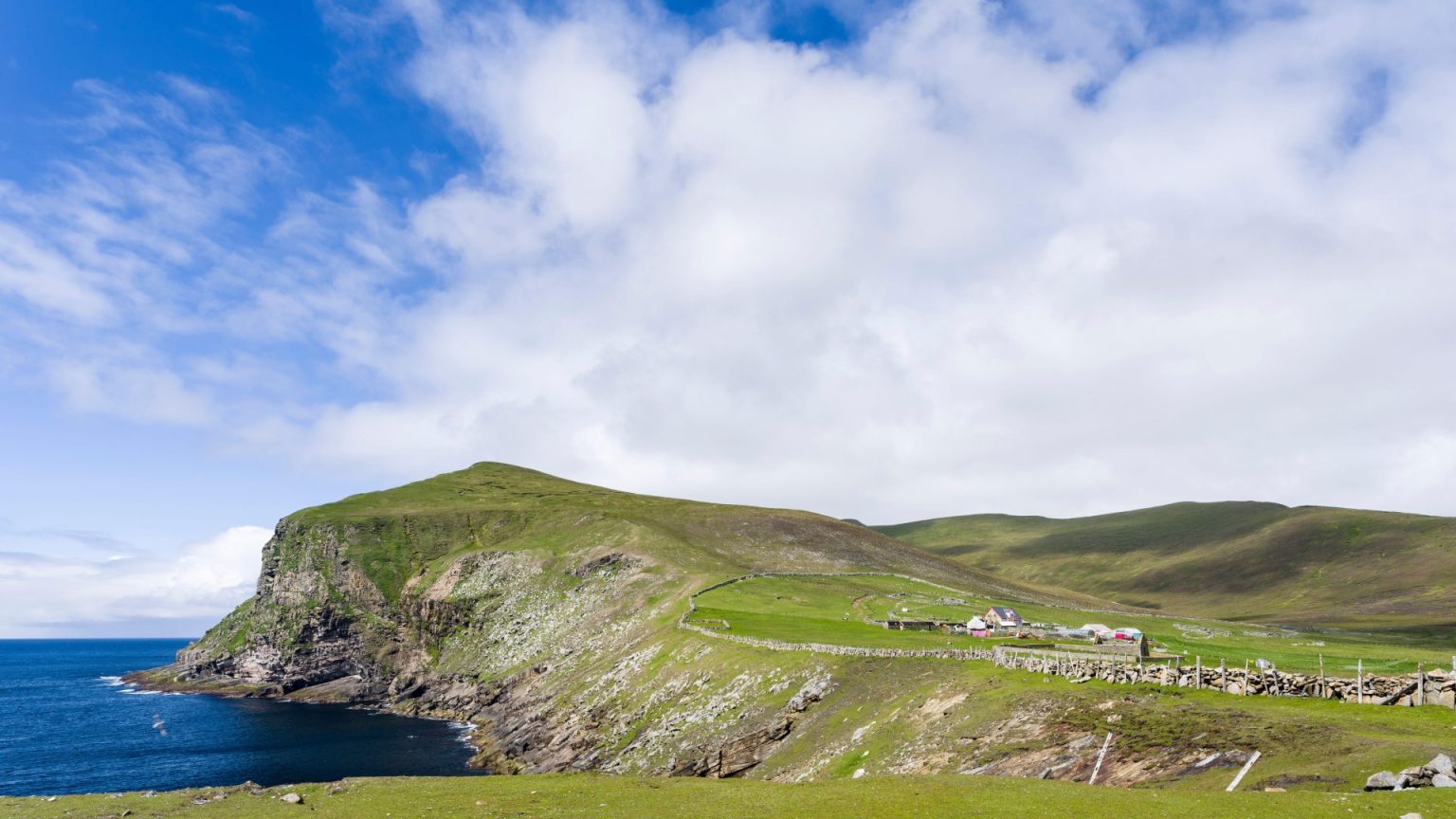Foula, a remote island nestled 20 miles off the west coast of Shetland, stands apart not only geographically but also temporally. Its 35 residents observe New Year’s Day on January 13th, a tradition rooted in their adherence to the Julian calendar. While the rest of the UK adopted the Gregorian calendar in 1752, Foula retained its long-standing practice, resulting in a 12-day discrepancy in their celebrations of Christmas and New Year. This temporal anomaly, coupled with its isolation from the national grid and lack of modern amenities like pubs, shops, and WiFi, contributes to Foula’s unique character and allure. The island relies on sea and air deliveries for essential supplies, fostering a self-sufficient and close-knit community.
Despite its remote nature and lack of conventional entertainment options, Foula offers a wealth of experiences for those seeking a truly immersive and wholesome escape. The island’s dramatic landscape, encompassing five distinctive peaks including the towering Da Kame sea cliff, provides breathtaking vistas. Foula, along with the rest of the Shetland Islands, is also a prime location to witness the ethereal beauty of the Northern Lights, or “Mirrie Dancers” as they are known locally. The optimal viewing period for this celestial spectacle extends from mid-October to mid-March, offering visitors a chance to marvel at nature’s grand display.
Beyond its striking scenery, Foula boasts a unique ecological tapestry. The island is renowned for its indigenous sheep population, which, due to a long-standing ban on imports, has remained genetically distinct and boasts a vibrant array of wool colors. As its Old Norse name “Fugla-ey” (bird island) suggests, Foula is a haven for birdwatchers, with opportunities to spot a variety of species including puffins, kittiwakes, guillemots, and fulmars. The waters surrounding Foula also hold historical secrets, with numerous shipwrecks, including the RMS Oceanic, lying beneath the waves, attracting scuba diving enthusiasts.
For those preferring land-based exploration, Foula offers guided walks organized by the Foula Ranger Service, as well as self-guided walks facilitated by Foula Heritage, providing maps and information to visitors. Accommodation on the island is limited to self-catering options, requiring visitors to bring their own provisions, further emphasizing the island’s self-sufficiency and remoteness. Reaching Foula entails either a two-hour fifteen-minute ferry journey, operating three times a week, or a flight from the Shetland Mainland.
Foula’s unique blend of tradition, isolation, and natural beauty offers a compelling alternative to conventional tourism. It presents an opportunity to disconnect from the digital world and reconnect with nature, history, and a close-knit community. While its inaccessibility and lack of modern conveniences might deter some, it is precisely these characteristics that draw those seeking a truly unique and authentic travel experience. This small island offers an immersive journey into a different pace of life, where time seems to slow down and the connection to the natural world is palpable.
In contrast to Foula’s unique temporal observance, the rest of the UK adheres to the Gregorian calendar, leading to a fascinating juxtaposition of traditions. While much of the world celebrated the New Year on January 1st, the residents of Foula patiently awaited their own celebration, steeped in history and maintained through generations. This adherence to the Julian calendar serves as a symbol of the island’s resilience, independence, and enduring connection to its past. It is a testament to the power of tradition and the strength of a community in preserving its unique identity in the face of external influences. The stark contrast between Foula’s observance and the rest of the UK highlights the diversity of cultural practices and the fascinating ways in which time and tradition are perceived and celebrated. Foula’s distinct New Year celebration serves as a reminder of the richness and complexity of human experience.


